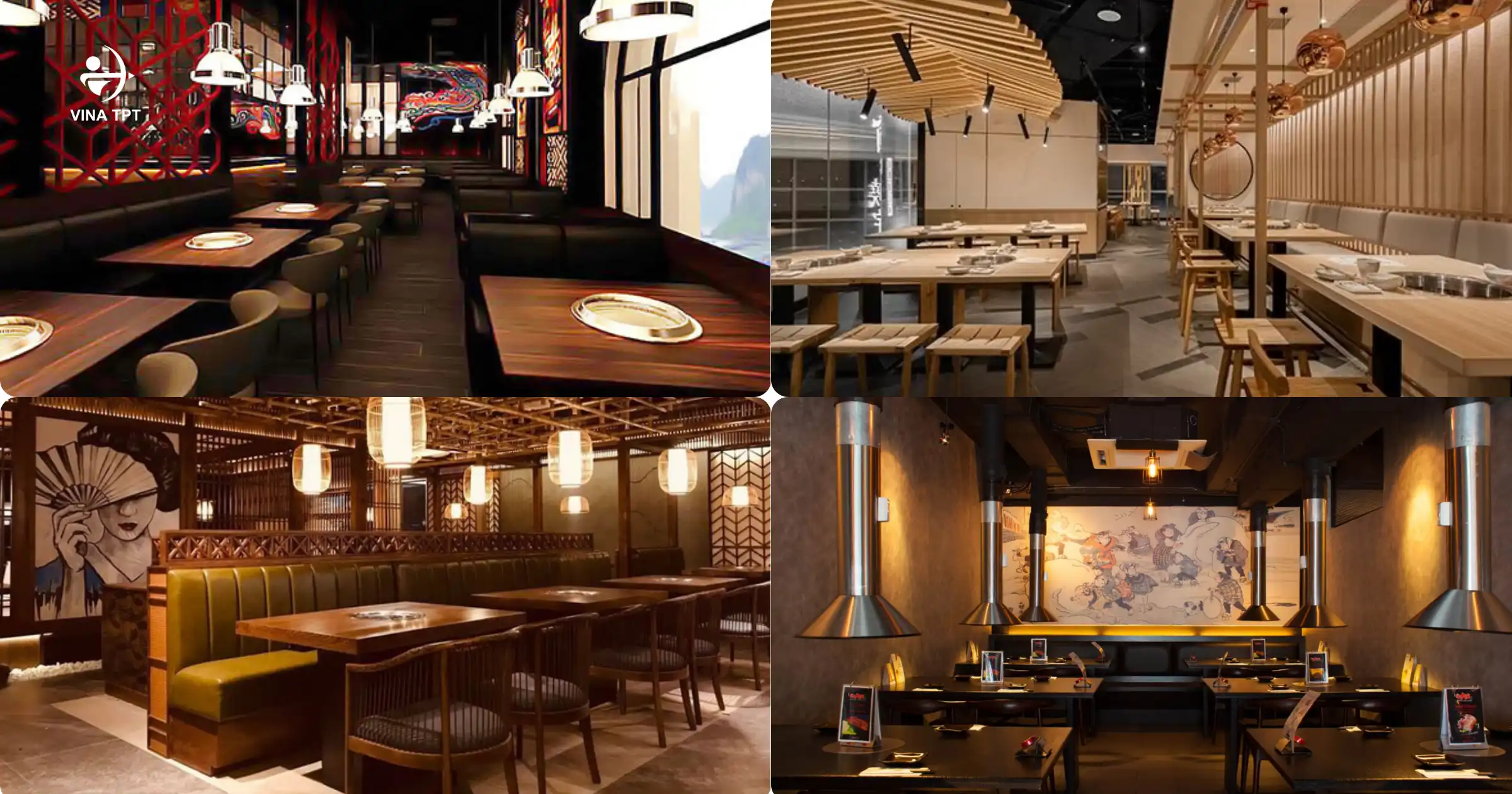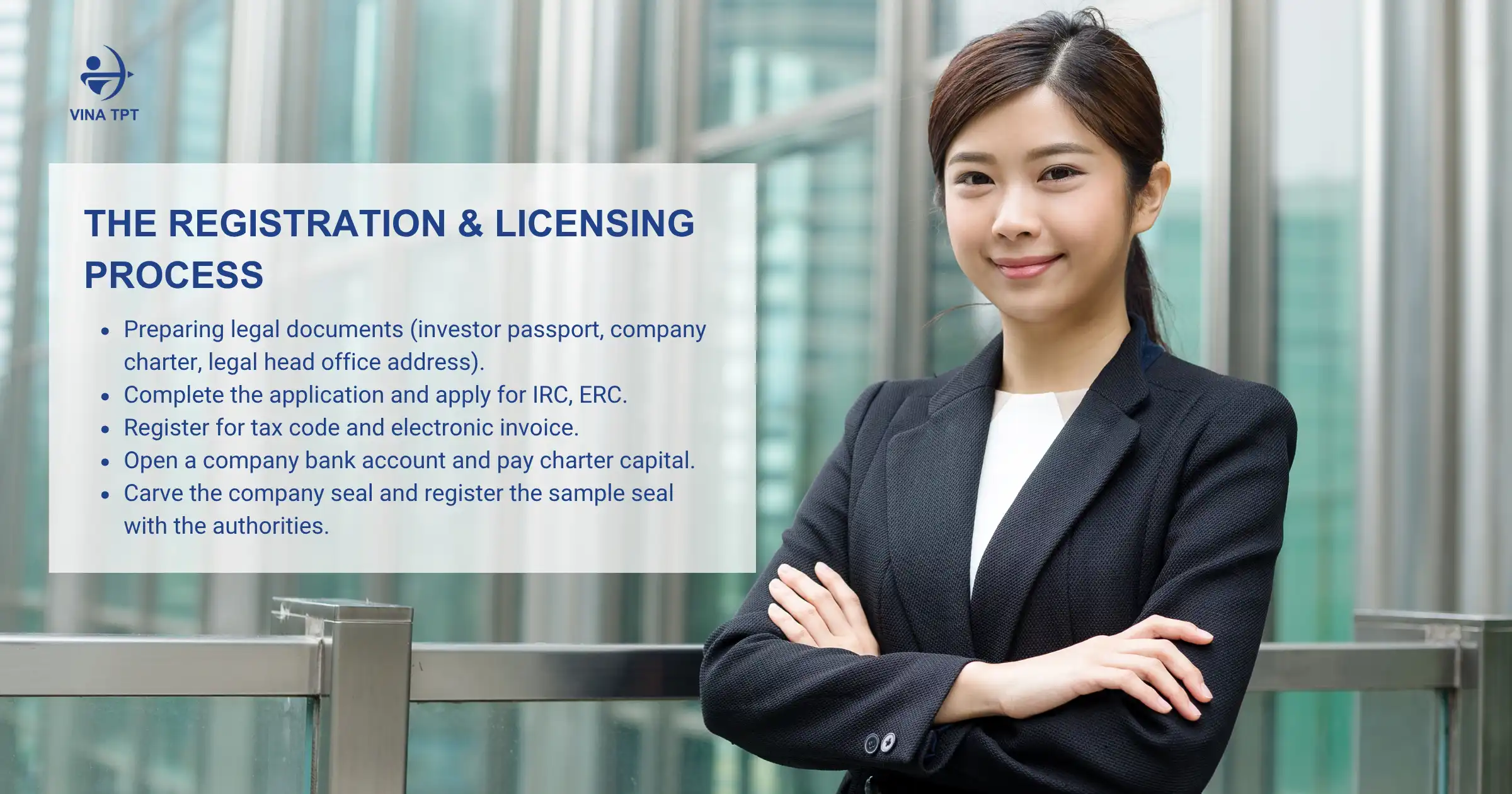
1. Why Korean F&B Brands Are Thriving in Vietnam
In recent years, Vietnam has become one of the fastest growing F&B markets in Southeast Asia, with spending on food and entertainment accounting for more than 35% of young consumers’ total disposable income. The booming middle class, the growing popularity of “eating out”, and the strong influence of Hallyu (Korean Wave) culture have created ideal conditions for Korean food brands to expand their business.
From Korean BBQ chains, Seoul-style cafes, to dessert shops, Vietnamese consumers especially Gen Z and Millennials see enjoying Korean food as a cultural experience rather than just eating. This explains why many Korean brands, from traditional restaurants to franchised coffee chains, are choosing Vietnam as their second strategic move after Korea.
However, behind that attractive potential are a series of legal challenges that foreign investors need to understand. Many Korean brands encounter difficulties when setting up a business in Vietnam (enterprise registration), applying for an F&B business license, or completing food safety and hygiene certifications. Therefore, understanding the correct legal establishment process is the first factor that determines success when establishing a business in Vietnam.
Before going into the licensing process, you can consider a few concepts that are very popular in Vietnam: Korean tabletop BBQ, K-café & dessert, fast-casual K-food (fried chicken, mixed rice), and fusion/comfort food concepts. Each concept will affect the scale, location, and type of license required, so you should determine the concept before starting

2. Step 1 – Understanding Vietnam’s F&B Business License Requirements
To open a restaurant or cafe in Vietnam, Korean investors need the following types of business licenses in Vietnam:
- Investment Registration Certificate (IRC): certifying that the company legally authorizes an investment project and records its key details
- Enterprise Registration Certificate (ERC): certifying that the company is legal and allowed to operate in Vietnam.
- Food Safety and Hygiene Certificate: required for food processing or serving establishments.
- Fire Safety Certificate: ensures that the location meets fire prevention and fighting standards.
- Other local permits: such as sign registration, environmental license (if there is a food production scale).
Full preparation of these licenses helps businesses operate legally, avoiding the risk of being fined or having their business suspended.
3. Step 2 – Choosing the Right Legal Structure for Korean Investors
When setting up a business in Vietnam, Korean investors can choose one of three popular legal forms:
- 100% foreign-owned company: Full management, suitable for brands with experience and large capital.
- Joint Venture: Cooperate with Vietnamese partners, helping to understand the market and process licenses faster.
- Franchise model: Flexible solution for BBQ or cafe chains that want to expand their brand without directly managing operations.
Each model has its own advantages and disadvantages, depending on the scale, capital, and long-term development strategy of the Korean brand in Vietnam. In addition, at this stage, the most important thing is to determine whether to apply for an Investment Registration Certificate (IRC) or not, as this procedure will affect the entire time and plan of operation later.
According to the Vietnam Investment Law, an IRC is a mandatory license if Korean investors want to:
- Establish a 100% Korean-owned company in Vietnam (e.g., a company managing a BBQ chain, cafe, bakery, etc.);
- Contribute more than 51% of capital to a Vietnamese company operating in the F&B sector;
- Open a branch or restaurant under a Korean parent company.
In this case, the process will include two stages:
- Apply for IRC: Investment Registration Certificate, issued by the Department of Planning and Investment (DPI).
- Apply for ERC: Enterprise Registration Certificate (similar to a company establishment license).
The estimated time for completion is:
Document preparation: 1-2 weeks, depending on the volume of documents and the level of complexity.
- IRC appraisal: 20-45 working days.
- ERC issuance: 10-20 working days after IRC (or similar if the enterprise is a domestic enterprise).
4. Step 3 – The Registration & Licensing Process Explained

The process of setting up a business in Vietnam includes the following basic steps:
- Preparing legal documents (investor passport, company charter, legal head office address).
- Complete the application and apply for IRC, ERC.
If the project has FDI capital, IRC is the first license allowing the investor to implement the project in Vietnam.
The required documents usually include:
- Application for investment project implementation and Project proposal: stating the objectives, scale, location, investment capital, progress.
- Proof of the investor’s financial capacity: bank statement, credit contract or collateral.
- Legal documents of the investor:
- Individual: Notarized passport, consular legalization.
- Organization: Business registration certificate or equivalent document, consular legalization.
- Project location: lease contract or land/office use rights certificate.
After the IRC is granted (or for 100% domestic-owned enterprises), the investor applies for an ERC – an official license for the enterprise to operate, and also the tax code of the company.
The ERC dossier usually includes:
- Application for enterprise registration.
- Company Charter: stipulates the organizational structure, powers of members/shareholders, capital ratio and management method.
- List of members/shareholders and legal representatives: clearly state information, ownership ratio, voting rights.
- Appointment decision and authorization letter (if any).
- Capital contribution plan & financial evidence: bank statement or credit contract (especially important for large capital projects).
3.Register for tax code and electronic invoice.
4.Open a company bank account and pay charter capital.
5.Carve the company seal and register the sample seal with the authorities.
5. Step 4 – Post-License Requirements for F&B Businesses
After obtaining the operating license, the enterprise needs to complete the following post-registration procedures:
- Renting a business premises in accordance with local planning
- Signing a labor contract and registering personnel with the labor management agency
- Registering taxes and social insurance for employees
- Signing contracts with suppliers of raw materials and operating services
- Checking and certifying food safety before opening
- Registering for trademark protection to protect intellectual property rights in Vietnam
These steps help enterprises ensure comprehensive compliance and be ready to operate stably.
6. Simplify Your Market Entry with Vina TPT Company Registration Service
With many years of experience supporting Korean F&B brands in Vietnam, Vina TPT Company Registration Service provides a complete solution including:
- Consulting on choosing the right type of business
- Drafting and submitting registration documents to the Department of Planning and Investment
- Applying for hygiene, fire prevention and trademark licenses
- Setting up accounting, tax and labor systems according to Vietnamese regulations
Vina TPT acts as a “one-stop service” to help Korean investors shorten time, reduce legal risks and focus on brand development.
7. From Startup to Success: Launching Your Korean BBQ or Café Smoothly
Opening a Korean restaurant or cafe in Vietnam is not only an attractive business opportunity, but also a journey to bring Korean culinary culture closer to Vietnamese customers. With clear instructions and a reliable legal partner like Vina TPT, the business registration process will become simpler, more legal and sustainable than ever.
Contact Vina TPT today for detailed advice on the F&B business registration process in Vietnam – fast, transparent and legal.
